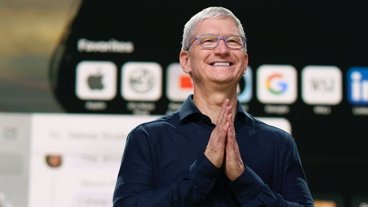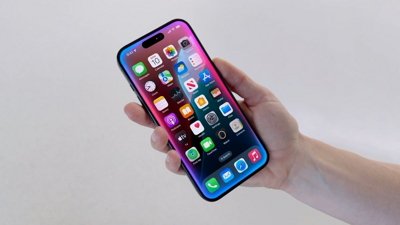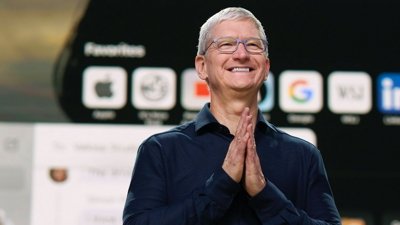Developers have earned $320 billion from the App Store since its beginning, but an analyst believes revenue from the platform was down year-over-year in December.
Apple published its annual year-end report on Tuesday, sharing how much money developers have made from the App Store and listed other accomplishments around its Services business.
In the report from UBS seen by AppleInsider, analyst David Vogt believes the report suggests that App Store revenue in December 2022 was likely down 7% to 8%, based on a flat take rate year-over-year. UBS also estimates Apple's blended take rate in the App Store is between 22% and 24%.
While Apple expects Services to grow in the December quarter, UBS believes it will continue to be affected by foreign exchange rates, macroeconomic factors such as inflation, and softness in digital advertising and gaming.
Vogt forecasts revenue from Apple's Services business to be approximately $20 billion, in line with the consensus of $20.3 billion and estimates the App Store accounts for almost 25% of Services.
It's not clear what else Vogt is basing his assumptions on, other than a press release outside of investor's channels, which have historically been vague and imprecise. If Apple is rounding down in the letter — and it likely is, as it has done so in the past — this may throw off Vogt's calculations.
Despite a possible December decline in App Store earnings, UBS is maintaining its price target for AAPL at $180. It's based on a 25x earnings-per-share multiple of $6.55 for the calendar year 2024.
 Andrew Orr
Andrew Orr



-xl-(1)-xl-xl-m.jpg)



 Marko Zivkovic
Marko Zivkovic
 Amber Neely
Amber Neely
 William Gallagher
William Gallagher

 Sponsored Content
Sponsored Content

 Malcolm Owen
Malcolm Owen
 Mike Wuerthele
Mike Wuerthele







6 Comments
Apple has about 34 million registered developers so about $9,400 on average per developer over about 14 years so about an average of $672 per developer per year. Of course the calculation would be more accurate if figures for each individual year was used.
Some of this is no doubt due to national and global economic trends. But that is not the whole story ... we've had economic downturns before.
Instead it is two things (which Apple has seen coming and been working to adapt to in various ways for years).
1. Mobile devices have mostly reached a saturation point. No big shock there. The iPhone was introduced in 2007 and the iPad in 2010. There is still some action to be had in the developing markets, but much of that is going to be inexpensive Android devices.
2. There hasn't been a "killer app" that everyone talks about and rushes to download in years. Where there used to be several a year, TikTok was the last, and before that Fortnite. Again, this reflects market maturity as most of the ideas have been done.
Of course Apple isn't "doomed" but just like the boom times for Microsoft that existed when people first started getting onto the Internet in large numbers, Microsoft owned 97% of the client computing market share and there was literally no practical alternative to Office and they were so dominant that Bill Gates literally thought that the PlayStation was its biggest threat (to be fair, pre-iPod and iPhone, Sony was much bigger and more influential than they are now ... bigger than Apple even) are never coming back, the "peak iPhone" thing has long passed and is settling into normalcy.